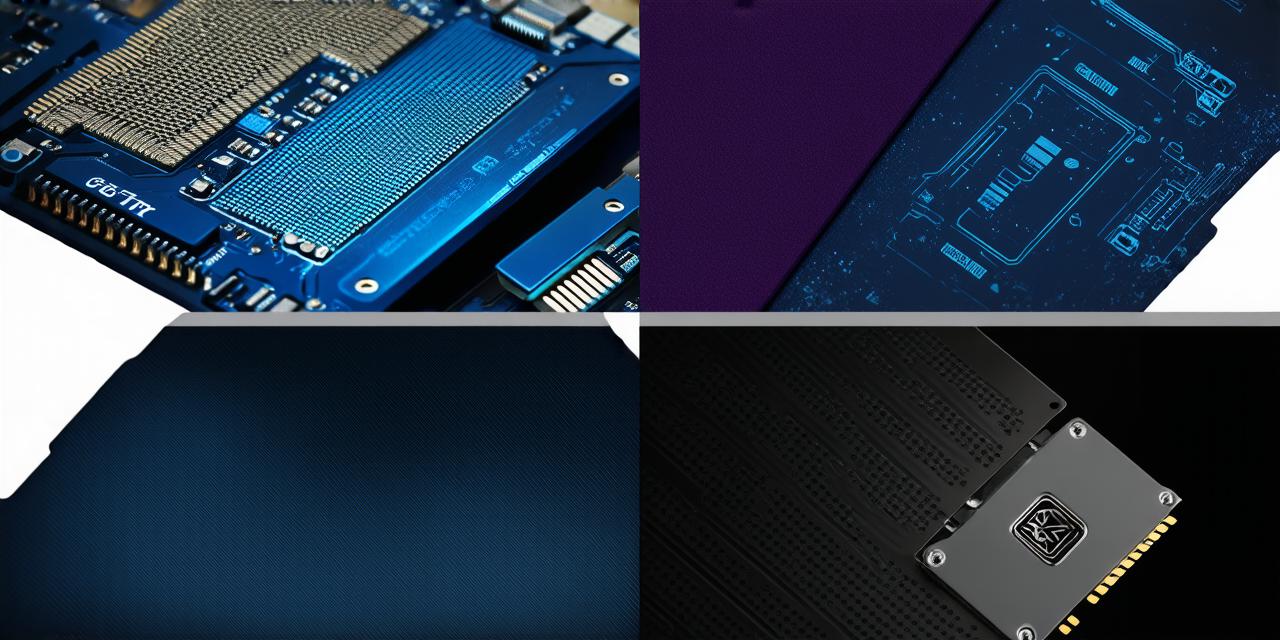Introduction
When it comes to building a gaming PC, one of the most common questions asked by gamers is which component is more important: CPU or GPU. While both components play a crucial role in game performance, their relative importance can vary depending on the type of game and the specific requirements of the title. In this article, we’ll explore the different factors that affect game development and determine which component is more critical for your gaming experience.
What is a CPU?
CPU stands for Central Processing Unit, and it is the brain of the computer. It’s responsible for executing instructions and managing all the other components in the system. In the context of game development, the CPU determines how fast the computer can execute code and perform calculations needed to render graphics and sound.
What is a GPU?
GPU stands for Graphics Processing Unit, and it’s responsible for rendering images and visual effects on your computer screen. It’s specifically designed to handle graphical tasks, such as creating 3D models and animations, which makes it much faster at rendering than the CPU. In game development, a GPU is essential for generating high-quality graphics and real-time rendering.
Factors Affecting Game Development
Before we dive into the debate about which component is more important, let’s take a closer look at some of the factors that affect game development:
- Graphical Complexity: Games with complex graphics and 3D models require more processing power than simple games. In this case, a GPU would be essential for generating high-quality visual effects, while the CPU would focus on running other tasks in the background.
- Game Engine: The game engine you choose can also affect your development process. Some engines, like Unreal Engine and CryEngine, rely heavily on GPUs to generate high-quality graphics, while others like Unity, use CPUs for rendering.
- System Requirements: Games with higher system requirements typically require a more powerful CPU or GPU, depending on the complexity of the game. For example, games that require a lot of memory and processing power, like Fortnite, would need a high-end CPU and GPU to run smoothly.
- Programming Languages: Different programming languages are used for game development, and each language has its strengths and weaknesses. Some programming languages, like C++ and Rust, are better suited for developing games that require high processing power, while others like Unity’s C scripting language, are more accessible to beginners.

The Great Debate: CPU vs GPU
Now that we have a better understanding of the factors that affect game development, let’s take a closer look at the debate about which component is more important.
…
Summary
In conclusion, whether CPU or GPU is more important for game development depends on several factors, including graphical complexity, game engine, system requirements, programming languages, and budget constraints. While both components play a crucial role in game performance, GPUs are generally considered more important than CPUs due to their ability to handle high-quality graphics and real-time rendering. However, if you’re building a gaming PC on a budget or playing games that don’t require high-quality graphics, a CPU can provide a significant performance boost. Ultimately, the best approach is to balance both components to achieve optimal performance for your specific needs.
FAQs
Do I need a powerful GPU to play Fortnite?
Yes, Fortnite requires a powerful GPU to run smoothly.
Can I upgrade my CPU and GPU on my gaming PC?
Yes, most gaming PCs have slots for upgrading CPUs and GPUs, making them more flexible than consoles.
What are some games that can run on a weak CPU and GPU?
Games like Minecraft or CSGO can run on a relatively weak CPU and GPU.
Red Dead Redemption 2 requires a powerful GPU to achieve smooth gameplay, so it may not be recommended for gamers with a weaker GPU.
